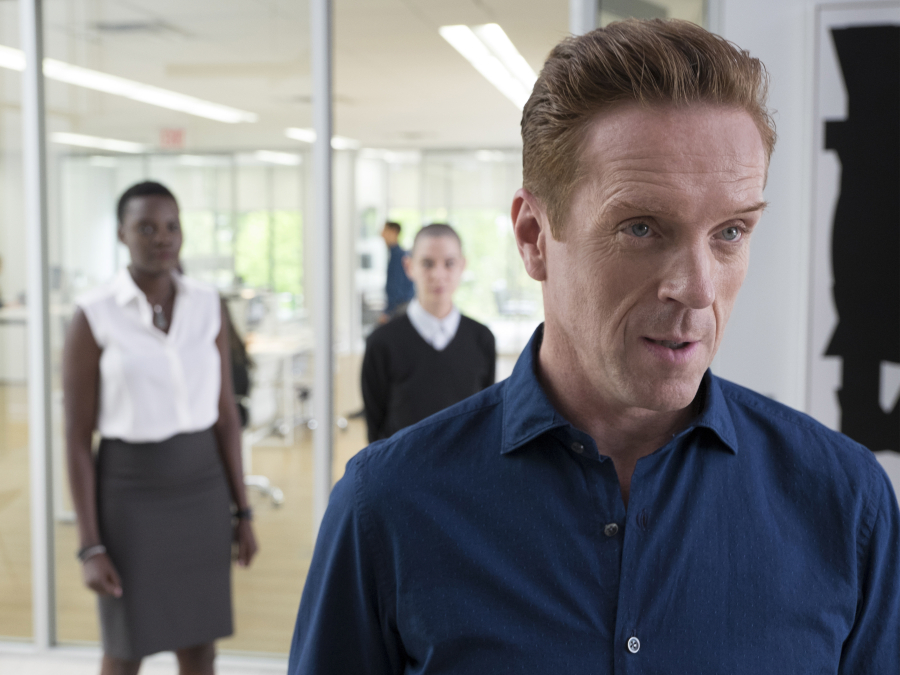The first season of Showtime’s “Billions” ends with the show’s two larger-than-life adversaries standing in the wreckage they’ve made of their lives. When two extraordinarily powerful men are pitted against each other, the doctrine of “mutual assured destruction” is supposed to act as a deterrent, preventing them from considering the nuclear option. And yet here they are — U.S. Attorney Chuck Rhoades (Paul Giamatti) and billionaire hedge fund manager Bobby “Axe” Axelrod (Damian Lewis) — in the bomb crater of Axe Capital, a once-sleek monument to unfettered capitalism, now reduced to a ravaged sales floor and wires hanging from the ceiling.
In his effort to bring Axe to justice for his relentless abuse of the financial system, Chuck has damaged his reputation and lost his marriage to Wendy (Maggie Siff), a corporate psychiatrist. In defending his business, Axe has also damaged his reputation and lost his relationship with Wendy, who happened to serve as his in-house performance coach for 15 years. The key insight to “Billions” — and a major source of the outrageous week-to-week excesses that make it so entertaining — is that Axe and Chuck will never stop fighting, no matter how much damage they do to themselves or the people they love. Their inflated egos cannot be punctured by humility.
“Billions” returned for a second season Feb. 19, to a world in which another billionaire, Donald Trump, has assumed the presidency. Though showrunners Brian Koppelman and David Levien have incorporated real-world developments in their previous work — their 2009 film “The Girlfriend Experience” is layered with chatter about the Great Recession — the name “Donald Trump” does not come up until the fourth episode. And even then, Koppelman and Levien are not interested in editorializing. They just know the type.
“We don’t try to track the headlines,” Levien said. “We try to establish a veracity in the behavior based on what we’ve seen. If there are events in the show that actually echo what’s going on in current events, that’s usually coincidental. We just try to get to the essence of what makes these people create these events.”



